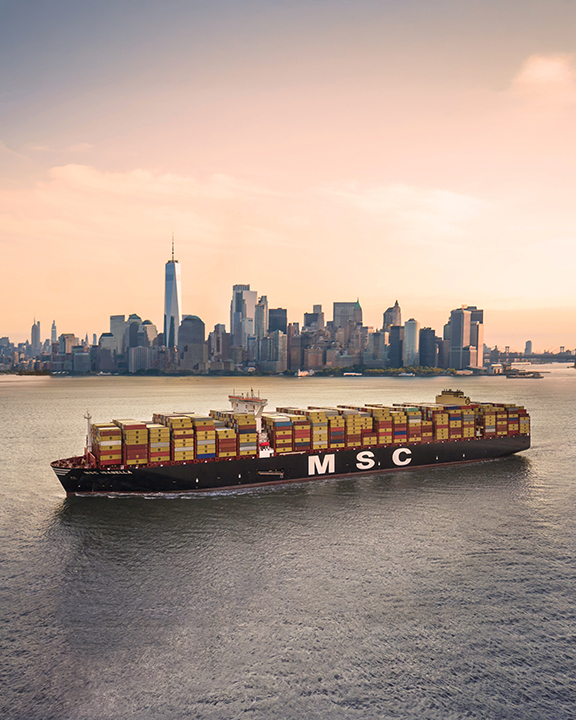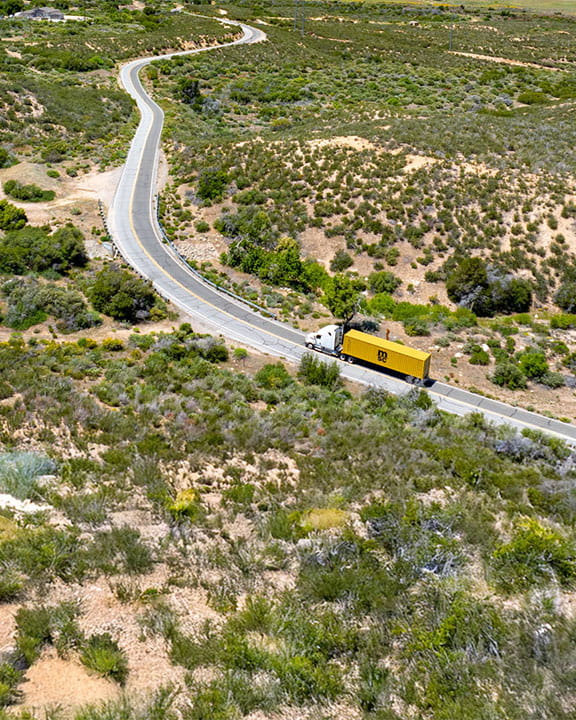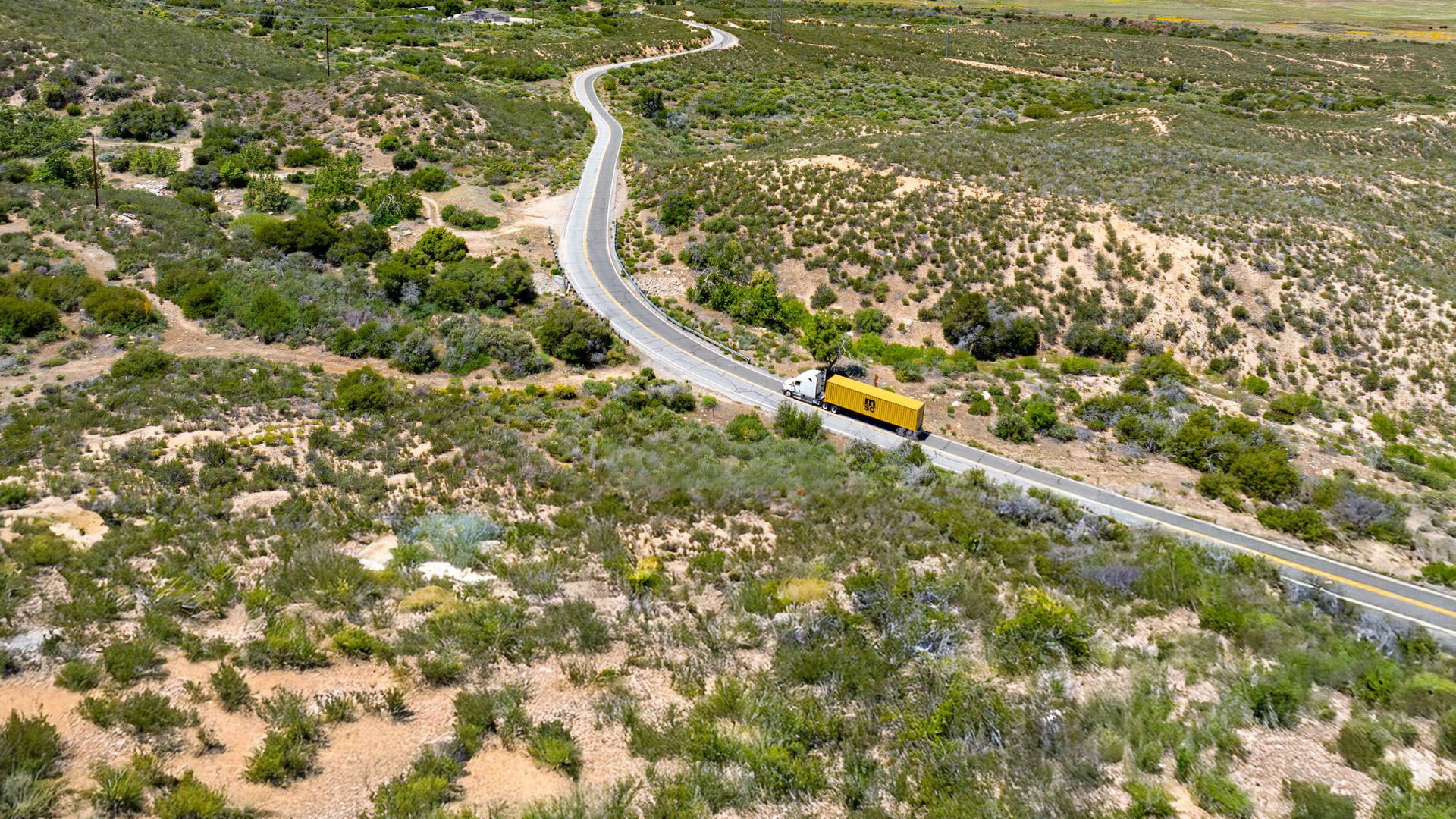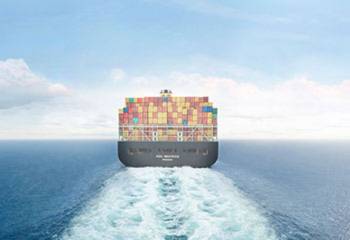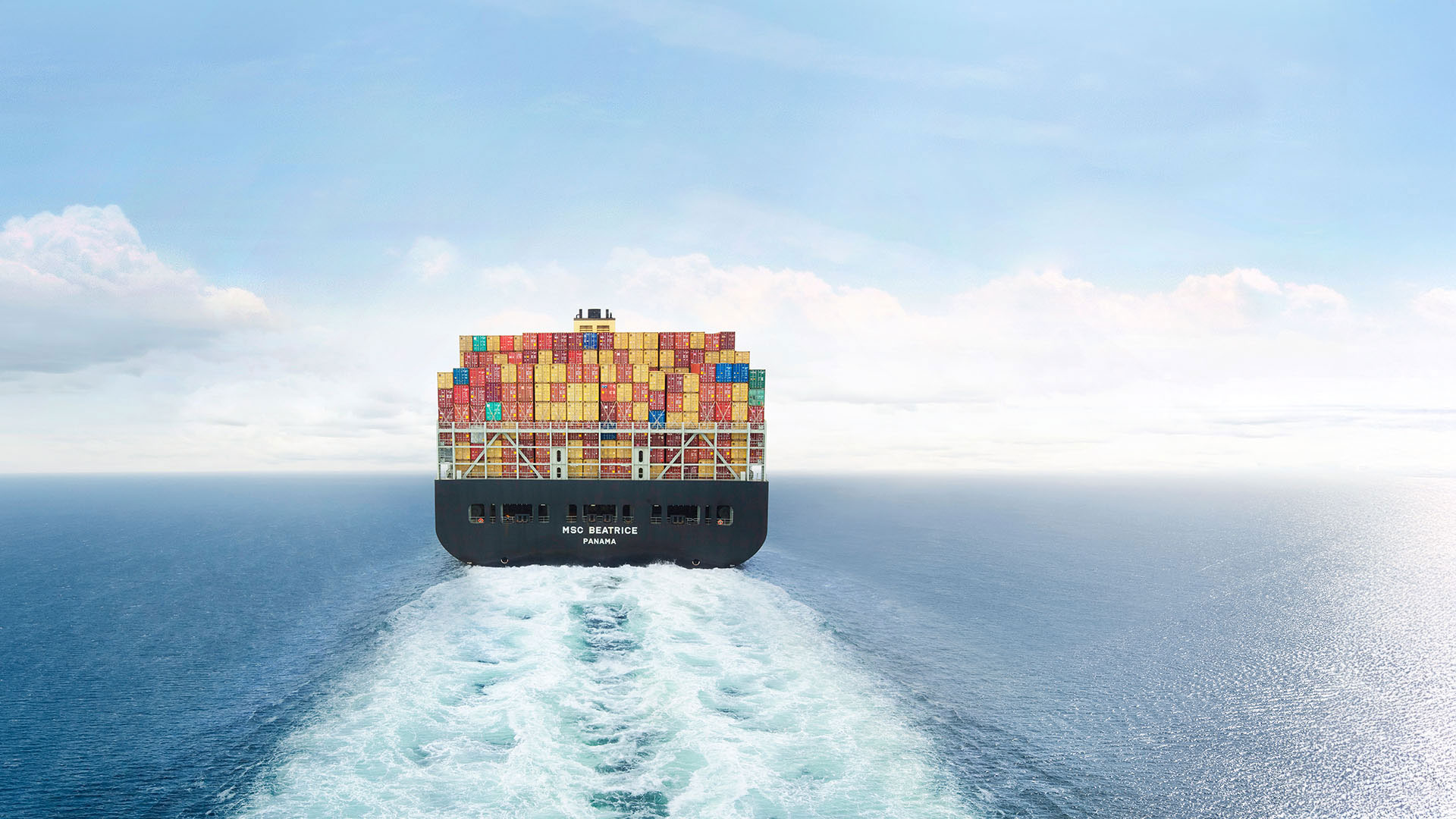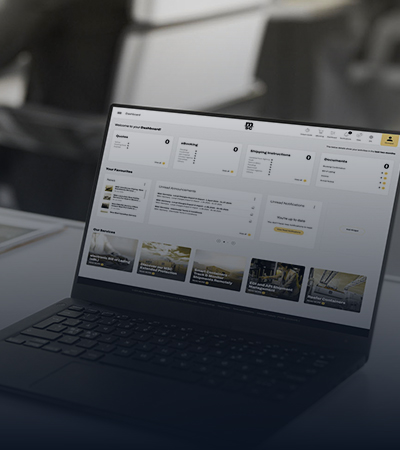Bridging USA to the World's Trade
Routes
Founded in 1985, MSC USA is a family company built on strong values, putting people, relationships and service at the heart of everything we do. For us, transportation is more than moving goods; it’s about long-term partnerships and customer trust.
With 40 years of experience, we help you simplify the complexities of global trade. Leverage our local expertise and global reach to optimize your supply chain and keep your business moving efficiently. Today the company has 10 offices across the country, calling at 21 ports, operating in 31 terminals in the USA and Puerto Rico, and offering 49 weekly services.
Our logistics experts across both coasts and the Gulf are ready to collaborate with you and create customized solutions that meet your business needs. With MSC USA, you’re not just getting another logistics provider, you’re gaining a dedicated partner.
Póngase en contacto con nuestro equipo para solicitar un presupuesto, reservar o saber más sobre nuestros servicios locales
Your Gateway from USA to the World
At MSC USA, our dedicated export trade teams provide tailored solutions for each region.
With experts located across the country, we move your goods efficiently and reliably from point A to point B. Choose from multiple weekly sailings from ports such as Baltimore, Boston, Charleston, Houston, Jacksonville, Long Beach, Los Angeles, Miami, Mobile, New Orleans, New York, Norfolk, Oakland, Philadelphia, Port Everglades, Savannah, and Seattle. Our nationwide intermodal coverage ensures true door-to-door solutions via rail, road, and sea.
We are committed to making your export process smooth and efficient. Our local teams understand the complexities of international transportation and will ensure your cargo arrives safely and on schedule.
With a presence in over 130 countries, MSC USA offers unmatched expertise and connectivity to get your goods where they need to be.
” At MSC, we have a deep understanding of the global markets we serve. We know that every export comes with its challenges, and we are committed to helping you find solutions that truly make a difference. That's why our experienced export teams are always on hand, ensuring you have easy access to personalized service. Our clients, our people, our values, our passion for the sea, MSC's dedication to you. “
Announcements
Detention, Demurrage, Per Diem and Storage Charges
MSC will not assess demurrage, detention or per diem charges for any day in which a terminal is closed due to holidays, weekends, or other port closure events.
Please note, Working Days shall be considered any day in which the marine terminal operator is open and operational, including weekends and holidays in which it is open and operational.
For Detention, Demurrage and Per Diem charges kindly check the files below or click here.
SOLAS VGM information for the USA
A regulation for a safer supply chain
VGM Receiving Policy
• Accepting the U.S. Coast Guard’s declared equivalency, whereas they have confirmed that the existing terminal weighing practice for on-dock scales in the United States is compliant with SOLAS regulation, all U.S. marine terminals are now allowed to use their certified scales to record the VGM.
• MSC accepts the “Terminal Weighing Approach” to derive a compliant VGM for loading.
• For more information about "VGM USA policy and terminal guideline" please click on the PDF document on the right-hand side of this content.
What to include in your VGM instructions
The following items are mandatory and must be on all VGM instructions:
• Booking or Bill of Lading number
• Container number
• VGM + weight measurement unit (lbs. or kgs.)
• Responsible party name
• Digital signature of the authorized signatory in all CAPITAL LETTERS.
How to submit your VGM instructions
• myMSC (Free of charge)
• EDI (via INTTRA; GT NEXUS; Cargo Smart)
• Manually (via INTTRA; GT NEXUS; Cargo Smart)
• Submit via email to: USA-export.customerservice@msc.com with confirmation of $25 Manual VGM Fee, applicable per container
Policy questions should be directed to the toll-free number: (800) 222-3367
Deadlines for sending your VGM instructions
• We encourage customers to submit their Shipper-Verified Gross Mass (VGM) before cargo is delivered to avoid any unexpected weighing charges being levied against the cargo at the US port of load, which will be billed to the shipper of record.
• Currently, there are no US terminals with a “NO VGM – No GATE” policy. All “rail shipments” must have the VGM submitted within 24 hours of the container gating in at the origin rail ramp, to avoid any extra fees levied by the terminal for weighing services. Late gates will only be considered for approval when a VGM is submitted by the shipper of record before noon, local time, the day of the cargo cut-off.
MSC Admin Fees and costs
• Manual VGM Submission Fee (applies to email and fax): $25 per container.
• Late VGM Submission Fee: $25 per container.
• VGM Mis-declaration Fee: $300 per mis declaration, per container.
Contact information
SOLAS VGM Customer Service: (800) 222-3367
Tutorial about mymsc.com
MyMSC Guides United States
Please refer to the following guides when registering and navigating myMSC:
Sign up instructions MyMSC Registration
Instant Quote MyMSC Instant Quote
How to book MyMSC eBooking
Shipping instructions MyMSC eSI Submission
Track & Trace – last free day, freight & customs release status MyMSC Tracking & LFD
Documents – arrival notices MyMSC Documents - Arrival Notices
Documents – invoices MyMSC Documents - Invoices
USA invoice dispute portal MyMSC - DDP Invoice Dispute
Submit VGM MyMSC VGM submission
Learn more about our product: Sign up to our monthly webinars https://app.livestorm.co/mscevents-usa/mymsc-tutorial-and-q-and-a
Useful Links from mymsc.com
Prohibited Cargo
COMMODITIES GENERALLY NOT ACCEPTED BY MSC
Please note that the items listed are examples only and may not represent all possible scenarios. We encourage you to reach out to your MSC representative for further details regarding these commodities, since each case is reviewed individually.
• Drugs
• Embassy / government cargo
• Explosives
• Firearms, ammunition and look alike
• Live Animals / Plants
• Military cargo
• Money
• Pornography
• Precious metals
• Radioactive materials
• Steel / metal coils (only on P2P moves with completed LOI)
• Toxic Waste
• Trophies / taxidermy
• Used cars / HHG on Cross Border
• Used tires
This is not an exhaustive list and it is important to check the below prior to accepting any booking, to avoid any issues or fines at origin or destination.
• Rail commodity restriction lists
• Hazardous commodity restrictions, MSC and Partners
• The Import Local Requirements for each POD and / or trade manual
Use of ISO 17712 Compliant Seals
BACKGROUND: Under the Customs Trade Partnership Against Terrorism (CTPAT) full Instruments of International Traffic (i.e. shipping containers) must have high security seals properly affixed at the point of stuffing to prevent pilferage, the introduction of terrorist devices, and other contraband from entering the global supply chain.
MSC POLICY: It is MSC’s policy that an ISO 17712 compliant seal should be applied at all times during the transport under MSC’s custody and that all the letters and digits of the HSS number shall be documented properly and accurately on the Shipping Instructions, Bill of Lading, Manifest, or any other documentation related to the movement of the cargo. All shipments transported by MSC that are capable of being sealed must be secured immediately after loading/stuffing/packing by the responsible party (i.e. the shipper or packer acting on the shipper’s behalf) with a high security seal that meets or exceeds the most current ISO 17712 standard for high security seals and emphasized on MSC’s contract of carriage (Bill of Lading) which states under section 11.3:
The Merchant is responsible for the packing and sealing of all merchant-packed containers and, if a merchant-packed container is delivered by the carrier with an original seal as affixed by the merchant or customs or security control intact, or the carrier can establish bona fide circumstances in which the original seal was replaced, the carrier shall not be liable for any shortage of goods ascertained upon delivery.
As a best practice, it is recommended shippers take clear photographs of the following when preparing shipments for transit:
1. Their shipments inside the container before closing the doors.
2. The container door closed, with the container number clearly visible.
3. A legible close-up of the seal and the seal number before affixing it to the container; and lastly,
4. The high security seal properly affixed to the inner right door locking rod latch or lower right locking rod cam.
” Our Export Managers in our Trade Department together have thousands of years of experience combined. We're committed to building lifelong relationships with our customers based on trust and open communication. “
Your Trusted Partner for U.S Imports
The import division at MSC USA provides a seamless customer experience for U.S importers. With over 40 years of logistics experience, our import team delivers tailored supply chain across 13 industries. And, with 32 services serving U.S ports, we provide robust and efficient network to keep your business moving smoothly.
Need support or have a question?
Our customer service import teams can answer your questions.
Nationwide coverage in the USA
Our customer service teams on the East and West coasts provide the support you need, when you need it.
24/7 assistance
mymsc.com is your one stop resource for advisory of charges, arrival notices, release statuses and vessel arrivals.
Day or night, we've got you covered!
” With over 40 years of experience, MSC USA understands the intricacies of the market. This means we can effectively support our customers in meeting their supply chain needs. “
Import Useful Information
You can easily make your import booking, submit shipping instructions, and review drafts of your bill of lading using mymsc.com.
Once your cargo is on the water, access mymsc.com for tracking, arrival notices, advisory of charges, and non-negotiable copies of your bill of ladings.
If your cargo has arrived, you can view your last free day on the terminal website or at mymsc.com for MSC detention.
Contact Information: Need import assistance? Contact our dedicated Import Customer Service assistance team at 1-800-222-3367, press 1 available Monday through Friday 8:00A.M. EST – 5:00P.M. PST.
Import Customer Service email directory available Need a rate? Reach out to your sales manager. For spot quotes, search the Instant Quote tool in mymsc.com. New to MSC? Reach out to your MSC sales manager to be onboarded and get help with questions and processes.
You can easily make your import booking, submit shipping instructions, and review drafts of your bill of lading using mymsc.com.
Once your cargo is on the water, access mymsc.com for tracking, arrival notices, advisory of charges, and non-negotiable copies of your bill of ladings.
If your cargo has arrived, you can view your last free day on the terminal website or at mymsc.com for MSC detention.
Contact Information: Need import assistance? Contact our dedicated Import Customer Service assistance team at 1-800-222-3367, press 1 available Monday through Friday 8:00A.M. EST – 5:00P.M. PST.
Import Customer Service email directory available here.
Customs Information
The importers and/or their brokers/freight forwarders are responsible for filing all necessary Customs clearance and paperwork. The ISF is required to be filed by the customer as well.
Additional United States Customs information can be found below.
Import Security Filing (ISF):
For additional information, please refer to the accordion below titled Import Security Filing (ISF)
Information regarding U.S Customs’ requirements can be found on the CBP website:
Importer Security Filing '10+2' | U.S.
Customs and Border Protection
All U.S Customs information can be found at Trade | U.S. Customs and Border Protection regarding trade inquiries, CBP ACE, tips, FAQ for Customs.
For all any regulatory concerns or processes, visit eCFR :: Home for a USA Federal regulations.
A query about agricultural products and their import processes, permits or requirements. Please visit the USDA website to ensure compliance.
For information on MSC's agricultural security practices and pest contamination prevention, kindly download the following advisory here.
Import Security Filing (ISF)
Get easy access to Bill of Lading Number information to complete ISF filings with US Customs.
Información de reserva preliminar de la ISF:
MSC Inland Transportation
For more information, please click here.
Detention, Demurrage, and Per Diem
MSC will not assess demurrage, detention or per diem charges for any day in which a terminal is closed due to holidays, weekends, or other port closure events.
Please note, ‘working days’ are any days when the marine terminal operator is open and operational, including weekends and holidays when the terminal is operational.
For Detention, Demurrage and Per Diem Charges, kindly check the files below or here.
Invoices can be requested and paid at e-Pay.
” We understand that each shipment is more than just cargo; it's a crucial part of your supply chain. That's why you can rely on MSC to support you through every challenge and every opportunity, no matter how the supply chain evolves. “
MSC Applicable Rates Tool
In order for us to keep your most recent contact information on file to receive your Arrival Notices, please fill out the required information on our Contact Update Form. Arrival notices are always sent to the notify party on the Bill of Lading, but if you would like to add the consignee email as a designated contact for specific shipments you are welcome to include their information as well.
Contact details are assigned by your office location, so please include the company address that will show on your B/L.
Updates received here are only applicable for shipments imported to the US and will not update any account information you may use to retrieve arrival notices on our website.
If you need more information for Contact Updates, please email us at us038-ancontactupdate@msc.com.
Contact Us
Please refer below for our customer service teams contact information.
Customer Service General Phone Number: (800) 222-3367
- For Import Customer Service press 1
- For Export Customer service press 2
- For Finance press 3, (including Collection, Freight Cashier, Per Diem, and Demurrage and Detention)
Customer Service Email Contact:
- Import Customer Service: USA-Import.CustomerService@msc.com
- Export Customer Service: USA-Export.CustomerService@msc.com




